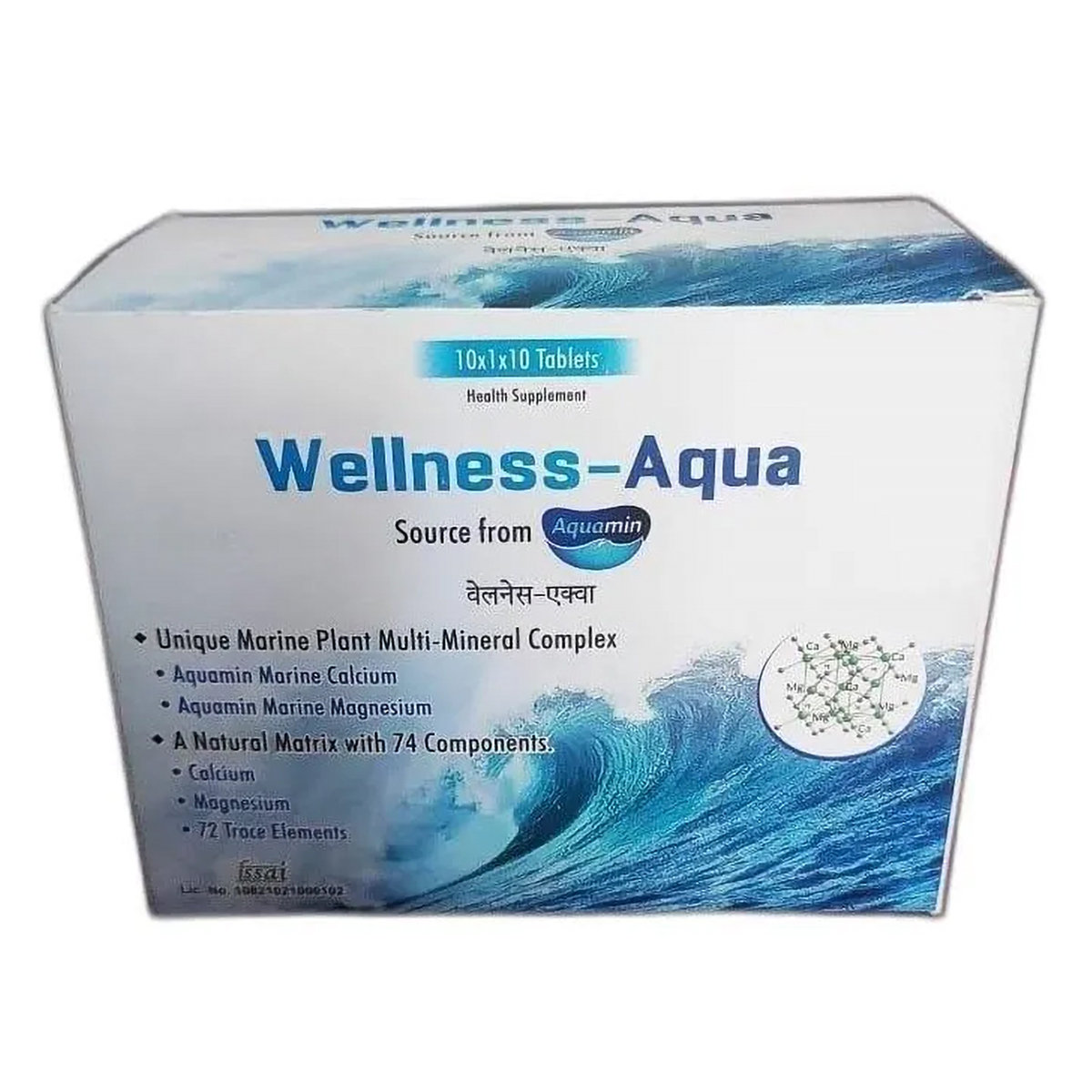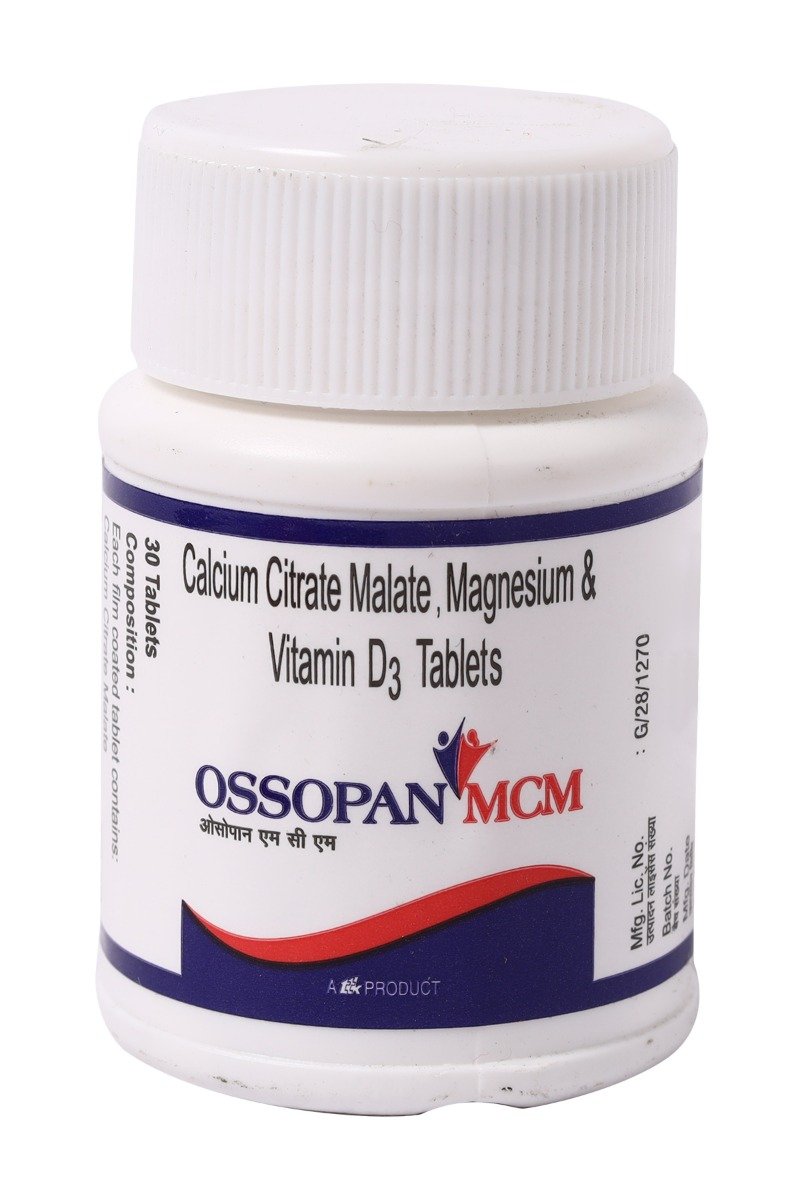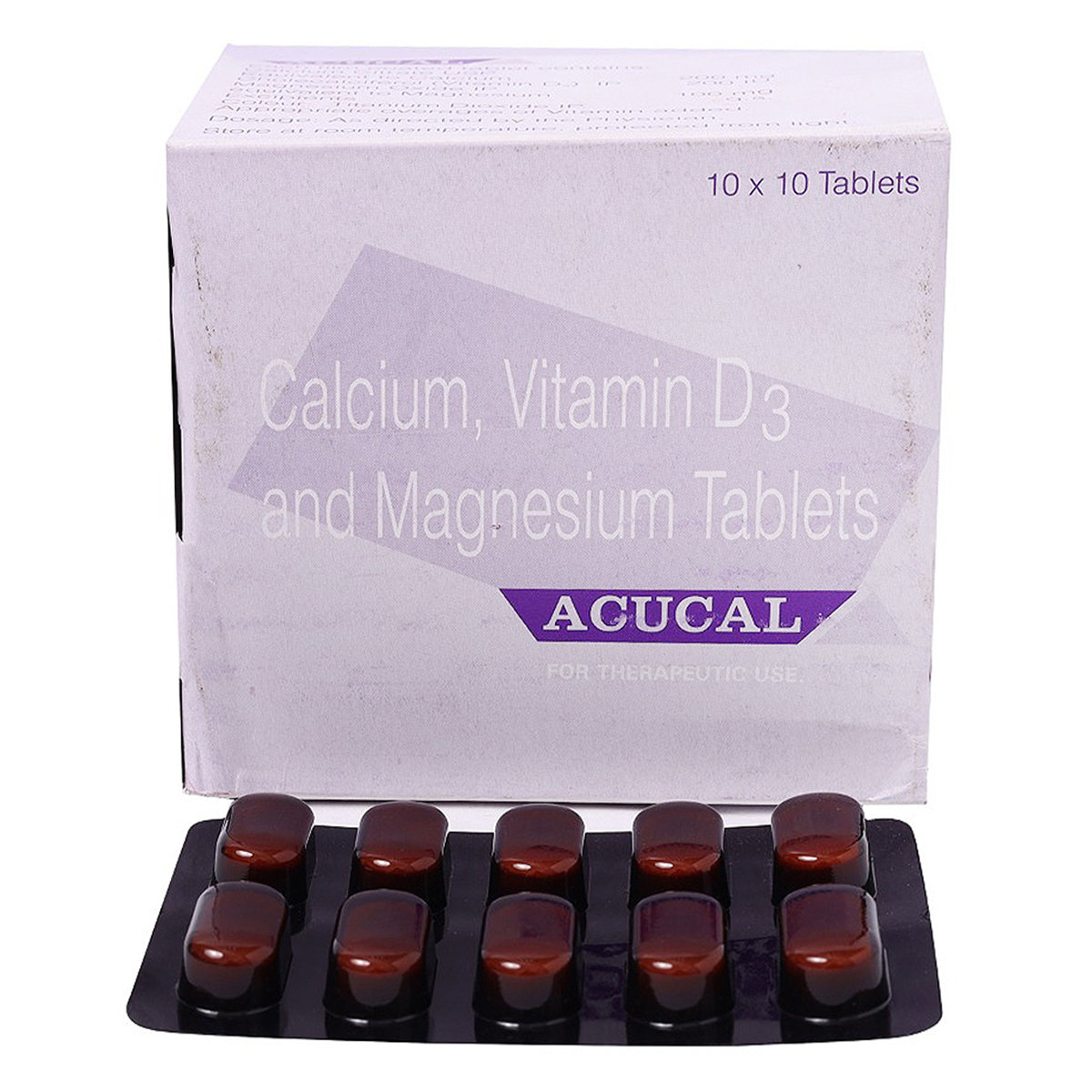Calcium+cholecalciferol+magnesium
About Calcium+cholecalciferol+magnesium
Calcium+cholecalciferol+magnesium is used to maintain normal bones. Calcium+cholecalciferol+magnesium effectively treats various conditions caused by low calcium levels in the body like Vitamin D deficiency, osteoporosis (weak and brittle bones), hypoparathyroidism (parathyroid glands make low levels of calcium in the body), latent tetany (a muscle disease with low blood calcium levels), and rickets or osteomalacia (softening or deforming of bones due to lack of calcium). Vitamin D deficiency occurs when your body has low Vitamin D levels and is caused due to inadequate nutrition, intestinal malabsorption, or lack of sunlight exposure.
Calcium+cholecalciferol+magnesium consists of three medicines: Calcium (mineral), Cholecalciferol (Vitamin D3), and magnesium (mineral). Calcium is a mineral that is used to prevent or treat a calcium deficiency. It provides essential nutrients to maintain bone formation and maintenance. Cholecalciferol is a steroid hormone produced in the skin when exposed to ultraviolet light or obtained from food sources. It is a provitamin that is converted into a vitamin after intake. Cholecalciferol is a form of Vitamin D and helps maintain blood calcium and phosphorus levels and bone mineralization. It is used to treat and prevent bone disorders, such as rickets and osteomalacia. Magnesium is a mineral that plays an important role in maintaining healthy bones by increasing bone density and also helps to prevent the onset of osteoporosis.
Take Calcium+cholecalciferol+magnesium as recommended. Your physician will decide the dosage based on your medical condition. Calcium+cholecalciferol+magnesium is likely safe to consume. In some cases, it may cause side effects like constipation, stomach upset, and diarrhea. These side effects do not require medical attention and gradually resolve over time. If these side effects persist, stop taking Calcium+cholecalciferol+magnesium and consult your physician immediately.
Avoid using Calcium+cholecalciferol+magnesium if allergic to it. Please tell your physician if you have hypercalcemia (high calcium levels), hypervitaminosis D (high vitamin D levels), and malabsorption syndrome (difficulty absorbing nutrition from food). Brief your medical history if you have any heart/kidney/liver/blood vessel diseases, kidney stones, sarcoidosis (growth of inflammatory cells in different parts of the body), Crohn's disease (inflammatory bowel disease), Whipple's disease (bacterial infection affecting joints and digestive system), achlorhydria (little or no stomach acid), low levels of bile, and phosphate imbalance. Tell your physician if you are pregnant or breastfeeding. You will need to talk about any risks to your baby. Calcium+cholecalciferol+magnesium is safe to use in children if advised by the physician.
Uses of Calcium+cholecalciferol+magnesium
Medicinal Benefits
Calcium+cholecalciferol+magnesium is used to treat low blood calcium levels. It effectively treats various conditions caused by low calcium levels in the body, like Vitamin D deficiency, osteoporosis, hypoparathyroidism, latent tetany, and rickets or osteomalacia. Calcium+cholecalciferol+magnesium consists of three medicines: Calcium (mineral), Cholecalciferol (Vitamin D3), and magnesium (mineral). Calcium is a mineral that is used to prevent or treat a calcium deficiency. It provides essential nutrients to maintain bone formation and maintenance. Cholecalciferol is a steroid hormone produced in the skin when exposed to ultraviolet light or obtained from food sources. It is a provitamin that is converted into a vitamin after intake. Cholecalciferol is a form of Vitamin D and helps maintain blood calcium and phosphorus levels and bone mineralization. It is used to treat and prevent bone disorders, such as rickets and osteomalacia. Magnesium is a mineral that plays an essential role in maintaining healthy bones by increasing bone density and also helps to prevent the onset of osteoporosis.
Directions for Use
- Take Calcium+cholecalciferol+magnesium with or without food as advised by a doctor.
- Follow your doctor’s recommendations on the dosage and timing of this medication to achieve optimal results.
- Swallow it as a whole with a glass of water.
- Do not crush, chew, or break it.
Storage
Side Effects of Calcium+cholecalciferol+magnesium
Stomach upset
Constipation
Diarrhoea
Drug Warnings
Avoid using if allergic to it. Calcium+cholecalciferol+magnesium is not recommended if you have hypercalcaemia (high calcium levels), hypervitaminosis D (high vitamin D levels), and malabsorption syndrome (difficulty absorbing nutrition from food). Brief your medical history if you have any heart/kidney/liver/blood vessel diseases, kidney stones, sarcoidosis (growth of inflammatory cells in different parts of the body), Crohn's disease (inflammatory bowel disease), Whipple's disease (bacterial infection affecting joints and digestive system), achlorhydria (little or no stomach acid), low levels of bile, and phosphate imbalance.
Chewable and dissolving tablets of Calcium+cholecalciferol+magnesium contain sugar or aspartame; hence caution should be taken to have diabetes and phenylketonuria (increased levels of an amino acid called phenylalanine). Higher doses of Vitamin D than the recommended daily dose should be used in pregnant women only when advised by the physician. Calcium+cholecalciferol+magnesium is excreted into the breast milk, hence consult your doctor before taking Calcium+cholecalciferol+magnesium if you are a breastfeeding mother. Drinking alcohol can affect calcium absorption; therefore, it is advised to limit the alcohol intake while using Calcium+cholecalciferol+magnesium. Calcium+cholecalciferol+magnesium is safe to use in children when suggested by the pediatrician. Do not start, stop, or change the dose of any drug without checking with your doctor. Do not store Calcium+cholecalciferol+magnesium above 25°C. Before having surgery, tell your doctor or dentist about all the products you use (including herbal products).
Drug Interactions
Drug-Drug Interactions: Calcium+cholecalciferol+magnesium may interact with drugs treating high cholesterol levels (cholestyramine, colesevelam, colestipol), antibiotics (doxycycline, minocycline, ciprofloxacin, levofloxacin, penicillin, neomycin, and chloramphenicol), anti-cancer drugs (estramustine, fluorouracil), drugs treating bone loss (alendronate), thyroid hormone (levothyroxine), weight-loss drugs (orlistat), anti-epileptics (phenobarbital), mineral oils (paraffin), water pills (furosemide, ethacrynic acid), and heart-related medicines (digitoxin), anti-hypertensives (amlodipine, atenolol), mercury poisoning antidote (dimercaprol)
Drug-Food Interactions: Avoid or reduce the intake of caffeine, soft drinks and alcohol that inhibit the calcium absorption.
Drug-Disease Interactions: Calcium+cholecalciferol+magnesium is contraindicated in hypercalcemia, hypervitaminosis D, malabsorption syndrome, Vitamin D toxicity, heart/kidney/liver/blood vessel diseases, kidney stones, sarcoidosis, Crohn's disease, Whipple's disease, achlorhydria, low levels of bile, phosphate imbalance, diabetes, and phenylketonuria.
Drug-Drug Interactions Checker List:
Safety Advice

Alcohol
cautionDrinking alcohol can affect calcium absorption; hence it is advised to limit the alcohol intake while using Calcium+cholecalciferol+magnesium.

Pregnancy
cautionDuring pregnancy, use higher doses of Calcium+cholecalciferol+magnesium than the daily dietary allowance only when advised by the physician.

Breast Feeding
cautionConsult your physician before taking Calcium+cholecalciferol+magnesium if you are breastfeeding. Calcium+cholecalciferol+magnesium can pass into the breast milk. If Calcium+cholecalciferol+magnesium is used during breastfeeding, please monitor the mother and the infant's serum calcium levels.

Driving
cautionIf you experience any dizziness while using Calcium+cholecalciferol+magnesium, do not drive or operate machinery. Please consult your physician if you experience any dizziness.

Liver
cautionLet your physician know if you have any history of liver diseases before taking Calcium+cholecalciferol+magnesium. Hepatic impairment/liver disease can alter the metabolic and therapeutic activity of certain Vitamin D forms.

Kidney
cautionTake a physician advise before starting Calcium+cholecalciferol+magnesium if you have kidney diseases like kidney stones or undergoing dialysis. Caution should be taken in patients undergoing dialysis to maintain adequate phosphorus levels and avoid ectopic calcification (calcium deposition).

Children
cautionThe physician will recommend the dosage of Calcium+cholecalciferol+magnesium based on the child's age and weight.
Habit Forming
Diet & Lifestyle Advise
Include dairy products like milk, yogurt, cheese, or milk-based custard in your diet.
Eat daily a serving of broccoli, cabbage, bok choy, spinach, and other green leafy vegetables.
Include the best dietary sources of vitamin D, such as fish liver oils and vitamin D–fortified milk.
Snack on calcium-rich nuts like Brazil nuts or almonds.
Sprinkle sesame seeds over your food, vegetables, and salads. Sesame seeds are high in calcium.
Avoid or reduce the intake of caffeine, soft drinks, and alcohol that inhibit calcium absorption.
Replace the meat with tofu or tempeh for extra calcium in your food.
Special Advise
Calcium+cholecalciferol+magnesium may interfere with cholesterol tests, hence please inform your physician and laboratory staff that you are taking Calcium+cholecalciferol+magnesium before undergoing blood tests.
Clinical monitoring of serum electrolyte concentrations and cardiac function is recommended.
To avoid stomach upset, take Calcium+cholecalciferol+magnesium with food.
Patients Concern
Disease/Condition Glossary
Vitamin D deficiency: When a person cannot get enough Vitamin D through food and exposure to sunlight, it leads to vitamin D deficiency. It often leads to thin, brittle or misshapen bones.
Osteoporosis: It is a bone disease that weakens and brittle bones by decreasing bone density.
Tetany: A disease condition due to low levels of calcium (hypocalcemia) in the body that causes cramps and spasms in the hands, feet, and larynx (voice box).
Osteomalacia/Rickets: A disease caused by softening and weakening bones in children due to inadequate vitamin D.
Hypoparathyroidism: It is a disease characterized by low parathyroid hormone levels. This can cause low calcium levels and trigger tetany (muscle cramps, spasms or tremors).
FAQs
Calcium+cholecalciferol+magnesium is used to maintain normal bones. Calcium+cholecalciferol+magnesium effectively treats various conditions caused by low calcium levels in the body like Vitamin D deficiency, osteoporosis (weak and brittle bones), hypoparathyroidism (parathyroid glands make low levels of calcium in the body), latent tetany (a muscle disease with low blood calcium levels), and rickets or osteomalacia (softening or deforming of bones due to lack of calcium).
Calcium+cholecalciferol+magnesium is a dietary supplement. It consists of Calcium, Cholecalciferol and magnesium. Calcium is a mineral and prevents or treats calcium deficiency. Cholecalciferol, also known as Vitamin D3, helps maintain blood calcium and phosphorus levels and bone mineralisation. Magnesium is a mineral that plays an important role in maintaining healthy bones by increasing bone density and also helps to prevent the onset of osteoporosis. When you don't get enough Vitamin D and minerals from food sources and sunlight exposure, Calcium+cholecalciferol+magnesium helps to balance those low levels.
If you miss a dose, take it as soon as you remember. However, if it is time for the next scheduled dose, skip the missed dose and follow your usual dosage.
Milk is considered to be the best source of calcium. You can take Calcium+cholecalciferol+magnesium with milk.
Calcium+cholecalciferol+magnesium can cause kidney stones due to excess calcium deposition when used for a prolonged period. Please consult your physician before taking Calcium+cholecalciferol+magnesium as a daily supplement if you have any kidney problems or a history of kidney stones.
Antacids may increase the absorption of Calcium from Calcium+cholecalciferol+magnesium. Hence it is advised to take Calcium+cholecalciferol+magnesium two hours before, or four hours after taking antacids.




